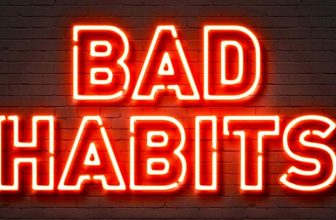
Have you ever noticed how you lose your appetite when you get bad news or are going through a difficult period at work? Do you feel sick or have digestive symptoms when you are stressed? Any emotion, whether scared, enthusiastic, furious, or sad, may cause a response in your Gastrointestinal tract. Concerned about how this works and what you can do about it? Then follow on for Acid Reflux: Do Emotions Affect Your Upper GI Health?
1. Your Gastrointestinal (GI) Tract
Let’s start by learning about your GI tract. The oesophagus, stomach, and duodenum (initial section of the small intestine) make up the upper GI tract, while the small intestine, large intestine (colon), rectum, and anus make up the lower part of the GI tract. Disorders of the gastrointestinal system are typically referred to by the section of the tract where they occur.
In this article, we will mainly discuss the upper GI and discuss the relationship between this and your mind. If you’re having problems with heartburn, nausea, vomiting, stomach pains, or difficulty swallowing, it might be a sign of an upper GI tract illness, which you should have examined via a Upper GI Endoscopy (EGD)
2. A Common Upper GI Disorder: Acid Reflux
Gastroesophageal Reflux Disease (GERD) is a condition that affects the oesophagus.
When stomach acid backs up into the oesophagus, it causes gastroesophageal reflux disease, a severe and persistent form of acid reflux (the tube that moves food from your throat to your stomach).
The lower esophageal sphincter (LES) is a ring of muscles at the bottom of the oesophagus. After food reaches the stomach from the oesophagus, the LES normally shuts securely.
However, with GERD, the ring may not always remain tightly closed. As a result, stomach contents and acids may be able to travel back up into the oesophagus.
A searing pain in the chest (heartburn), generally after a meal, a bitter or sour taste in the mouth, poor breath, and trouble swallowing are some of the symptoms. The lining of the oesophagus might be damaged and narrowed as a result of chronic GERD.
3. The Connection Between Your Stomach & Brain
Stress, emotions, sickness, behaviour, and personality are known to influence the intensity of gastroesophageal reflux disease (GERD) symptoms and also influence medical outcomes in certain individuals. The majority of people with gastroesophageal reflux disease (GERD) say stress makes their symptoms worse, but the causes behind this are unknown.
Researchers (Ronnie et al., 2008) have investigated the influence of an acute laboratory stressor on perceptual and emotional reactions to intraesophageal acid perfusion in healthy and GERD patients. They found that acute auditory stress can aggravate heartburn symptoms in GERD patients. This increased perception is linked to increased emotional responses to the stressor.
T. Kamolz et al. (2001) believed that for individuals with stress-related GERD symptoms, surgical therapy alone is insufficient, and psychosocial assistance can improve surgical outcomes in these patients. As a result, even if stress is not the primary cause of a digestive ailment, it can play a significant role in its progression.
4. Care for Your Emotional & Gastrointestinal Health
Now you know that your upper GI tract is closely linked to your emotions, what actions could you take to reduce symptoms if you are diagnosed with GERD and protect your upper GI health? We’ve also discussed how stress affects your GI health to a certain extent. Therefore, learning relaxation methods to cope with stress will be very helpful, and likely pretty necessary.
Here are some practical tips:
- Be aware of your feelings and reactions.
- Take note of what makes you unhappy, irritated, or furious in your life. Make an effort to confront or modify such issues.
- Learn how to manage stress
- Eat healthily:
Plant-based meals are high in fibre and include a variety of anti-inflammatory compounds. Improved digestive health has been related to a high-fibre diet.
Kefir (a fermented milk drink similar to yogurt that is high in probiotics) and other fermented or pickled foods are also good for the digestive tract (such as kimchi, sauerkraut and pickled ginger). - Deep breathing
- Meditation
- Exercise
Medicine is evolving toward a more holistic approach to treating patients, and non-prescription, therapeutic approaches are becoming increasingly popular. GI illnesses give us a clear example of how mind-body therapies may improve health. Do you suffer from acid reflux or GERD? What has worked best for you in managing symptoms? Let us know in the comments below, and join in the conversation on Facebook, Twitter & Instagram!









